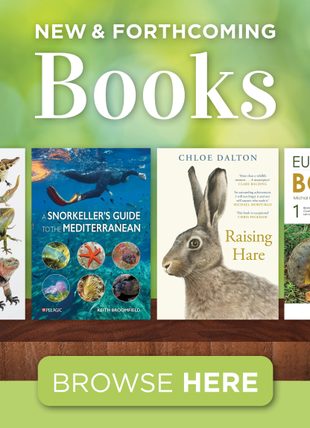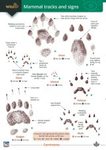About this book
The mammal fauna of the Brazilian Amazon is one of the most diverse on Earth with over 450 known species. Bringing together more than 70 of the world's top experts on Amazonian mammals, this book unites, for the first time, up-to-date data on the current state of knowledge on the ecology of all groups of non-rodent mammals in the Brazilian Amazon, analyses the effectiveness of current conservation programmes and identifies research and conservation priorities for the future.
Contents
- Why This Book on Amazonian Mammals Is Needed
- Xenarthrans of Brazilian Amazon: Recent Discoveries, Knowledge Gaps, and Conservation Concerns
- Biodiversity and Conservation of Bats in the Brazilian Amazonia - With a Review of the Last 10 Years of Research
- Primates of Brazilian Amazonia: Knowledge, Research Gaps and Conservation Priorities
- Claws and Fangs: Carnivore Abundance and the Conservation Importance of Amazonia
- Mammalian Megafauna: A Cross-continental Comparison in Research Output
- Amazonian Aquatic Mammals: Existing Knowledge, Current Threats and Future Studies
- Historical Commercial Hunting of Mammals in Amazonia
- Subsistence Hunting and Wild Meat Trade
- Management of Subsistence Hunting of Mammals in Amazonia: A Case Study in Loreto, Peru
- Showing and Saving: The Challenges and Opportunities of Mammal-based Tourism in Brazilian Amazonia
- Large-scale Land-use Changes and the Amazonian Mammal Biota
- Habitat Fragmentation Impacts on Amazonian Non-volant Mammals
- Bat Responses to Anthropogenic Forest Fragmentation: Insights from an Amazonian Fragmentation Experiment in Brazil
- Infectious Diseases: A Threat to the Conservation of Amazonian Mammal Species
- Mining Impacts on Aquatic Mammals of the Brazilian Amazon
- Chapter Effects of Anthropogenic Climate Change on Ecosystems and Biodiversity, Especially on Amazonian Mammals
- Conservation Strategies for Mammals in Brazilian Amazonia: Future Studies at Local, Regional and Global Scales
Customer Reviews
Biography
Wilson R. Spironello has published nearly 70 peer-reviewed articles and book chapters and has peer-reviewed for journals with an ecology and conservation focus. He has a degree in Ecology from Universidade Estadual Paulista Julio de Mesquita Filho, Brazil, and a PhD in Biology from the University of Cambridge, England. He is currently a researcher at the National Institute of Amazonian Research - INPA, in the Brazilian Amazon. In a 40-year research career in the Amazon, his studies have included plant ecology, ecology and management of timber species, primate ecology, and the ecology and population monitoring of medium and large terrestrial and arboreal mammals. He was president of the Brazilian Society of Primatology from 2014-2015.
Adrian A. Barnett has co-edited two previous multi-author mammal conservation books, has published nearly 150 peer-reviewed articles and book chapters, has acted as editor on a special issue of the American Journal of Primatology, and has peer-reviewed for 38 academic journals. He has a degree in Zoology from Oxford and a PhD in primatology from Roehampton University, England. He is currently a member of the ecology and botany departments at the National Institute of Amazonian Research - INPA, Manaus, AM. He has worked in the Brazilian Amazon for 30 years and had published on the ecology and conservation of primates, rodents, aquatic mammals and bats of the region.
Jessica W. Lynch is a Professor at the University of California, Los Angeles in the Institute for Society and Genetics and Department of Anthropology, where she teaches courses on Amazonia in the Anthropocene; Human-Animal Interactions; and Primate Genetics, Ecology and Conservation. She received her PhD in Biological Anthropology at the University of Wisconsin, Madison. She is a member of the IUCN Primate Specialist Group and Editor-In-Chief of the journal Neotropical Primates. Lynch's expertise centres on the evolution of behavioural and morphological diversity in mammals in the Americas. Her research focuses most strongly on understanding the diversity within capuchin monkeys (Sapajus and Cebus) and incorporates phylogenomic and biogeographic analyses.
Paulo Estefano D. Bobrowiec is a bat researcher at the National Institute for Amazonian Research (INPA) and the Biological Dynamics of Forest Fragments Project (BDFFP) who has published over 60 peer-reviewed articles and book chapters. He undertook a BSc in Biological Sciences at the Federal University of Uberlandia, a PhD in Genetics, Conservation and Evolutionary Biology, both at INPA, and a second PhD in Zoology at the Federal University of Amazonas. He has worked in the Brazilian Amazon for 22 years and his main area of expertise is bat ecology, community structure and conservation (forest fragmentation and dams flooding).
Sarah A. Boyle has conducted research on the behaviour, ecology, and conservation of Amazonian mammals, with a focus on non-human primates, for the past 20 years. She has published more than 50 scientific articles and book chapters. She has a degree in Anthropology from the College of William and Mary, Virginia, USA and a PhD in Biology from Arizona State University, Arizona, USA.


















![How to Find and Identify Mammals [Revised Edition]](http://mediacdn.nhbs.com/jackets/jackets_resizer_medium/21/210208.jpg?height=150&width=106)
















